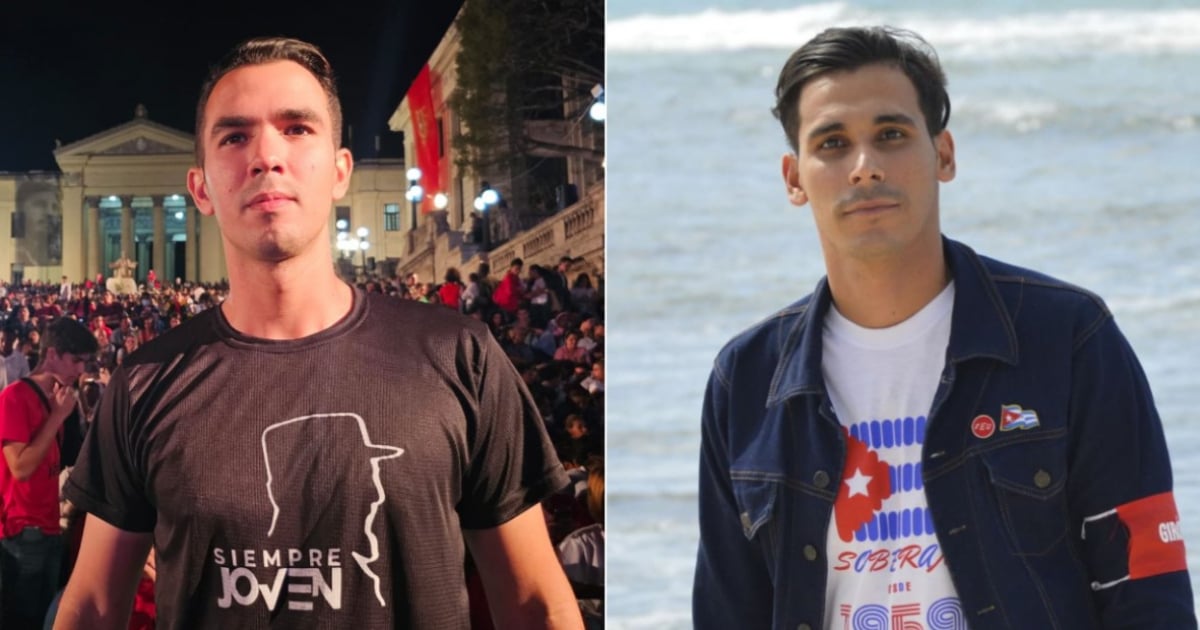Amid rising student dissatisfaction over the fees imposed by ETECSA, leaders of the University Student Federation (FEU) and the Union of Young Communists (UJC) have escalated their rhetoric, accusing "enemies of the Revolution" of manipulating the university environment and attempting to "destabilize" academic life in Cuba.
The FEU at the University of Havana released a statement asserting their commitment to "fostering dialogue" with students while condemning what they perceive as a media campaign aimed at dividing the student movement. "We support our students but reject media manipulation and attempts to disrupt normal university life... The FEU is united and will remain revolutionary," stated the message shared by Raúl Alejandro Palmero, the first secretary of the UJC in Havana.
In a similar vein, FEU's national president, Ricardo Rodríguez González, a member of the PCC, published a piece accusing regime-opposed media and "opinion frauds" of promoting "hatred" and "betrayal" around what he termed "dialogues of respect and proposals" at the university.
Rodríguez highlighted pressures on pro-government student leaders, claiming they are being coerced into making decisions contrary to institutional order and university "tranquility." "Our history is being wickedly manipulated, and we won't allow it. Enough," he declared. "Our spaces are genuine. Here I am to continue the Revolution for which our martyrs died."
University Strikes and Internal Divisions
These statements come amid unprecedented mobilization within Cuban universities, sparked by new restrictions from ETECSA that limit service in Cuban pesos while offering broader plans in dollars. In response to widespread outrage, ETECSA announced a partial solution: an additional 6 GB package for 360 CUP exclusively for university students, along with free access to over 40 educational sites.
Yet, university students have rejected mobile data packages tailored only for them, emphasizing their call for social justice and equitable Internet access for all citizens, rather than privileged treatment for specific sectors.
The tension peaked with a call for an indefinite academic strike initiated by students from the Mathematics and Computer Science departments at the University of Havana, joined by faculties of Philosophy, History, Sociology, and Social Work, among others. They also demanded the resignation of Ricardo Rodríguez González due to his perceived inability to adequately represent the student body.
A Break in the Official Narrative
While some student sectors demand horizontal dialogue, transparency, and inclusive measures, the recent statements from the FEU leadership and the University of Havana reflect an increasingly closed stance, aligned with traditional power narratives. The accusation of external interference and media manipulation, common in government statements, contrasts with the deliberate, critical, and constructive tone of communications issued by various university faculties.
This conflict also highlights a generational and ideological rift within Cuba's educational system, with a youth demanding to be heard without filters or supervision, and a leadership fearful of losing control. Meanwhile, student discontent continues to grow, garnering support inside and outside of Cuba, in a situation that some analysts compare to pivotal moments of university mobilization in the nation's history. As academic José Raúl Gallego recently noted, "Hopefully, the university will reclaim the place it once held in Cuba's history." The next decisive battle might once again unfold in the classrooms.
Key Issues in Cuban University Protests
What sparked the recent student protests in Cuban universities?
The protests were triggered by new restrictions from ETECSA that limited service in Cuban pesos, offering broader plans in dollars, which students saw as unfair.
How did ETECSA respond to the student protests?
ETECSA responded by offering an additional 6 GB data package for 360 CUP exclusively for university students and free access to over 40 educational sites.
What are the students' main demands?
Students are demanding social justice and equitable Internet access for all citizens rather than privilege for specific sectors.
What are the implications of the student protests for the Cuban government?
The protests reveal a generational and ideological divide within Cuba, challenging the government's control over academic discourse and potentially impacting the stability of the regime.
